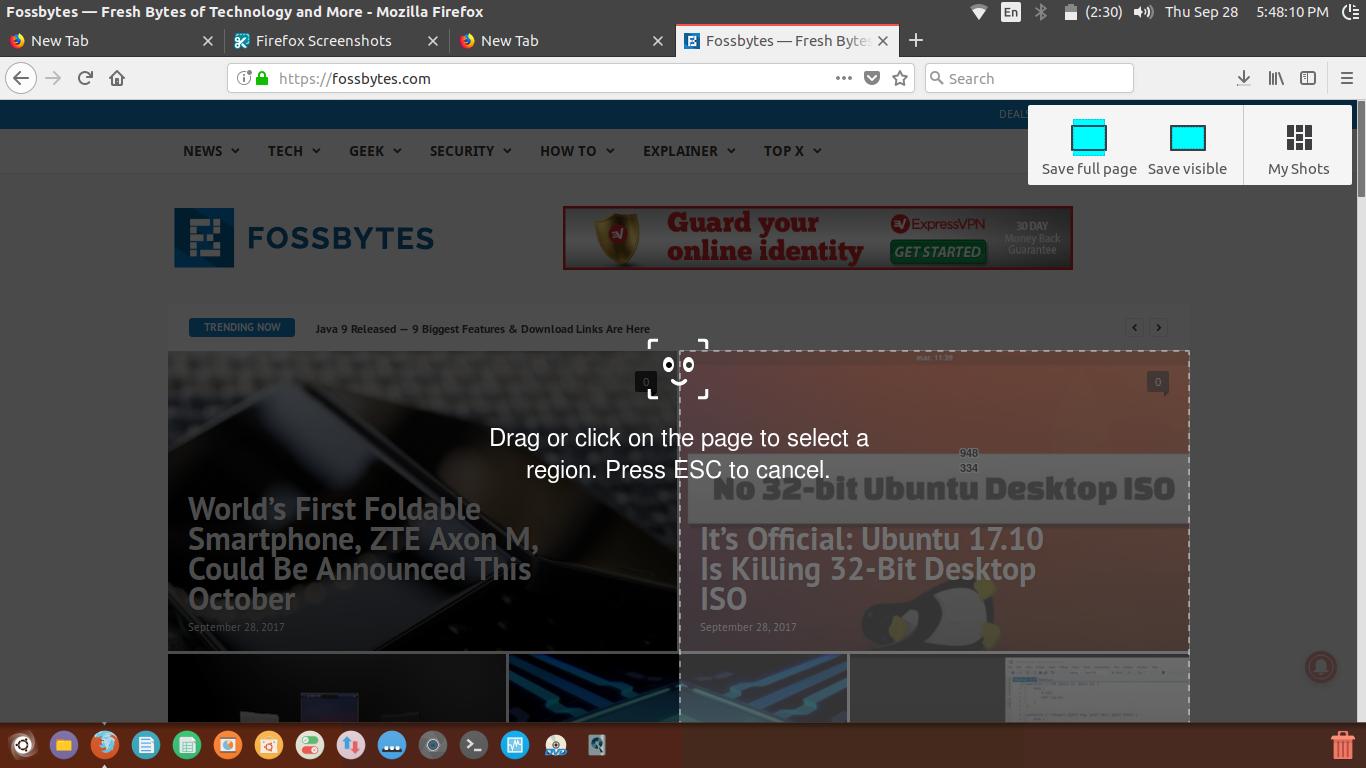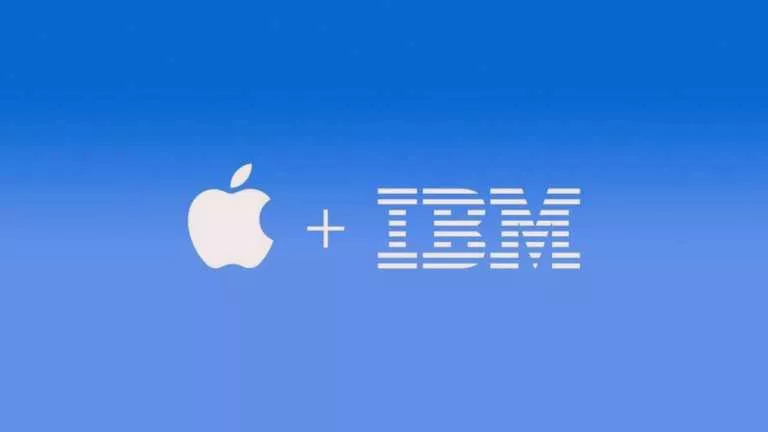What Is Firefox Quantum? How Is It Faster And Better Than Chrome?
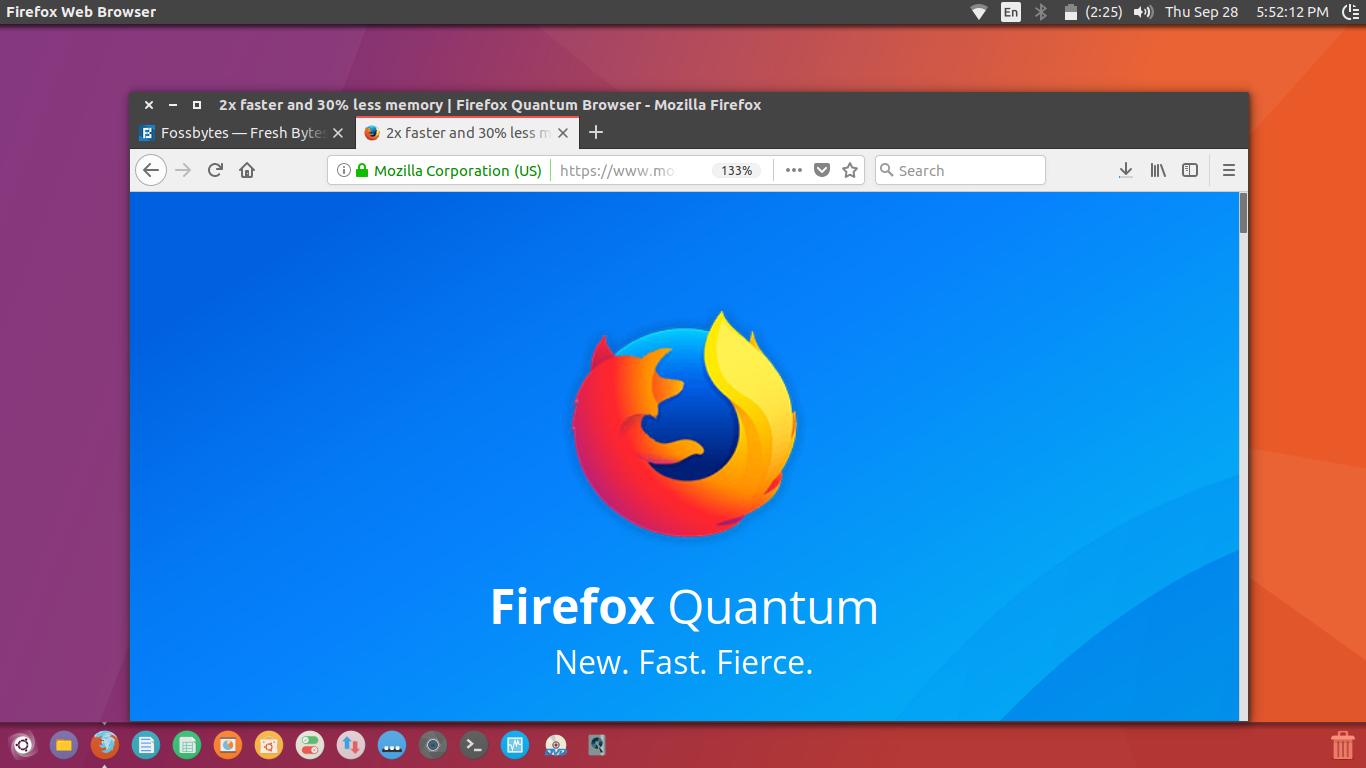
As Mozilla is aiming to completely overhaul Firefox, Electrolysis acted as a setup for something more and bigger. Here, I’m talking about the new Mozilla engine, whose work is being done under the name Project Quantum.
What is Project Quantum? What are its new Features?
Firefox’s Gecko Web engine was designed a long time ago when our computers were mostly single core and the usage of GPU acceleration wasn’t common. Today, things have changed and Firefox needs to step up its game.
On a side note, web engine is the core of a web browser that is responsible for running all the content you receive while browsing the web. The new Firefox Quantum web engine aims to use the modern hardware to the fullest and use the multicore CPUs to deliver a satisfactory performance.
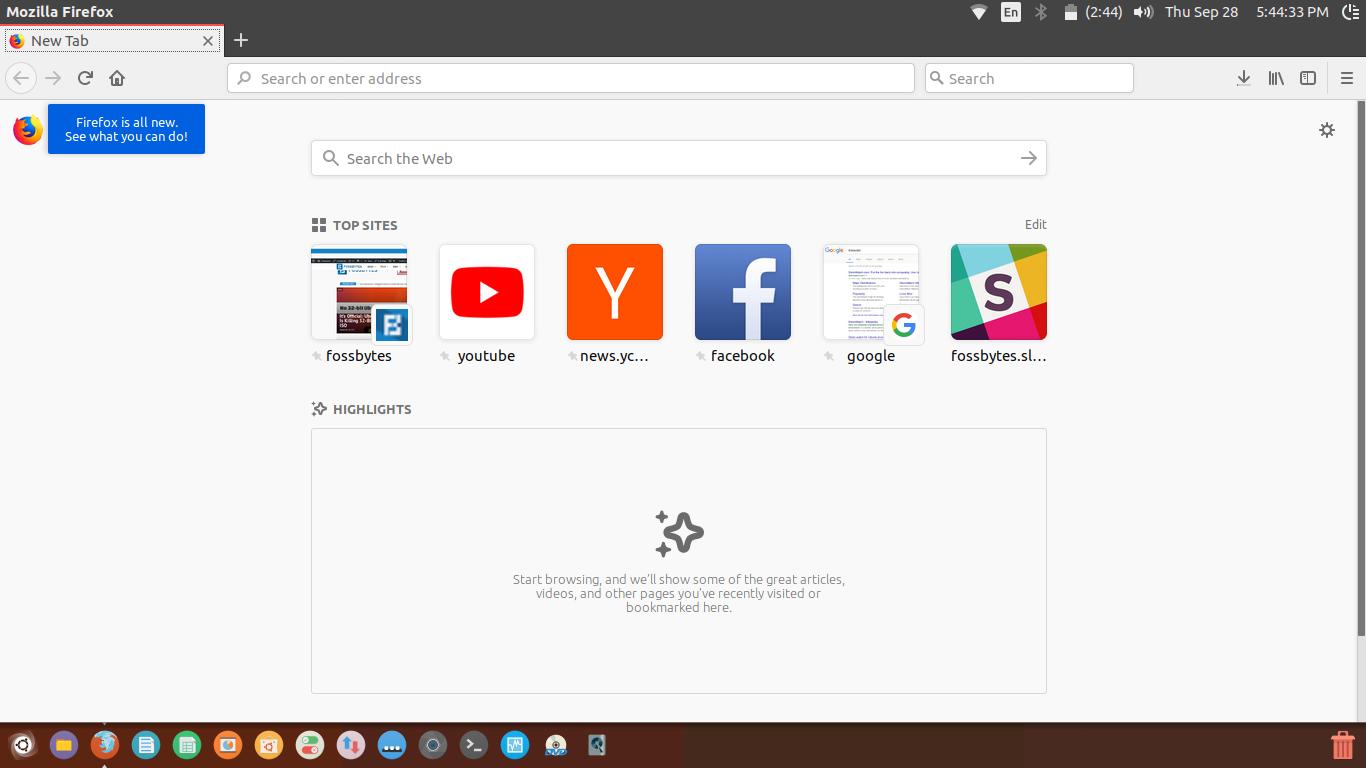
Again, in Mozilla’s words, since the next version number, i.e., 57, “can’t really convey the magnitude of the change,” the new Firefox is being called Firefox Quantum. As Mozilla calls it, the users are expected to experience a “quantum leap” in the performance. One will be able to scroll through the web pages smoothly, the loading will dramatically decrease, and you’ll be able to use complex interactive apps with more fluidity.
How will Mozilla Quantum achieve excellence?
Mozilla laid the foundations of a futuristic and open source web browser that respects your needs with the development of Rust programming language. Compared to C++, which continues to be a major part of Firefox code, Rust imposes certain memory restrictions on programmers for robust programs. Also, Rust code, in most cases, doesn’t compile unless it’s safe.
Mozilla Quantum incorporates some biggest components of Servo, which is a community-based web engine sponsored by Mozilla. Servo is written in Rust. As a result, Firefox will now run by a larger portion of Rust code.
Nowadays, our phones, laptops, and desktops have two, four, or more cores. Moreover, they also feature high-performance GPUs to accelerate rendering and calculations. Keeping this in mind, the major engine components of Gecko are replaced to gain benefits from either parallelization or offloading to the GPU.
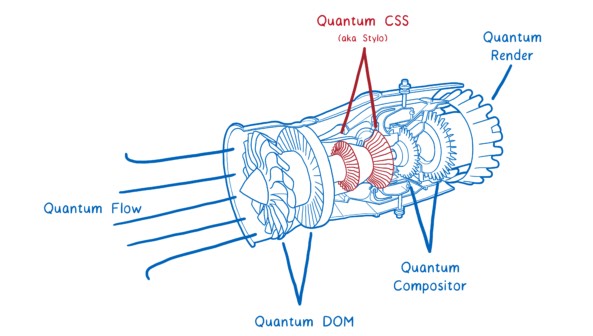
A major component of Mozilla Quantum development is a new, super fast CSS engine, Stylo, which is written in Rust. Stylo makes use of multiple threads for applying CSS properties to many elements simultaneously. Here, the style computations for different DOM cores are split across different cores. In Quantum CSS, this task is simplified using a technique called work stealing.
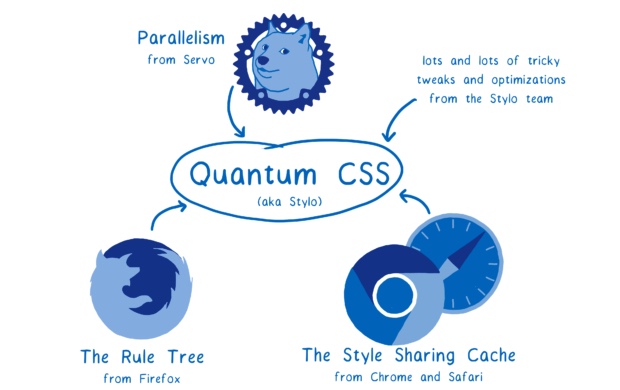
Another smart change in Firefox Quantum has been implemented to download and run the tab you’re actively using before other tabs in the background.
The other parts of Project Quantum are Quantum Render, Quantum Compositor, Quantum DOM, and Quantum Flow. These sub-projects improve background tab handling, UI optimization, GPU rendering, etc.
Result: 2x speed, 30% less RAM
Mozilla has been running tests on a regular basis and sharing the details on its blog. As a result of the tests carried out, Firefox Quantum performed about 2 times faster than previous versions of Firefox and Google Chrome. Shown below are the results of Speedometer 2.0 tests conducted on a Surface laptop:
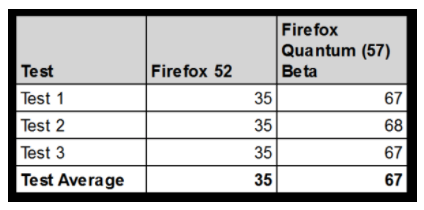
For comparing the memory usage, 30 pages were simultaneously loaded with 10 seconds in between loads. Here’s the memory usage of Firefox Quantum, Safari, Edge, and Chrome:
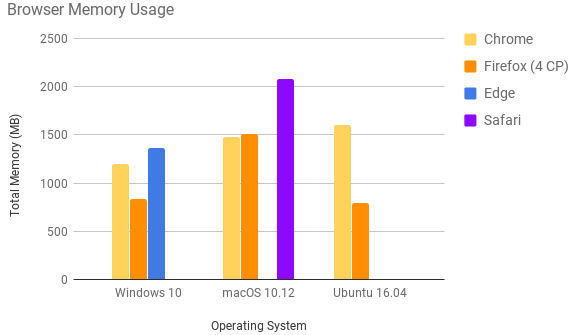
New developer tools, new looks, built-in Pocket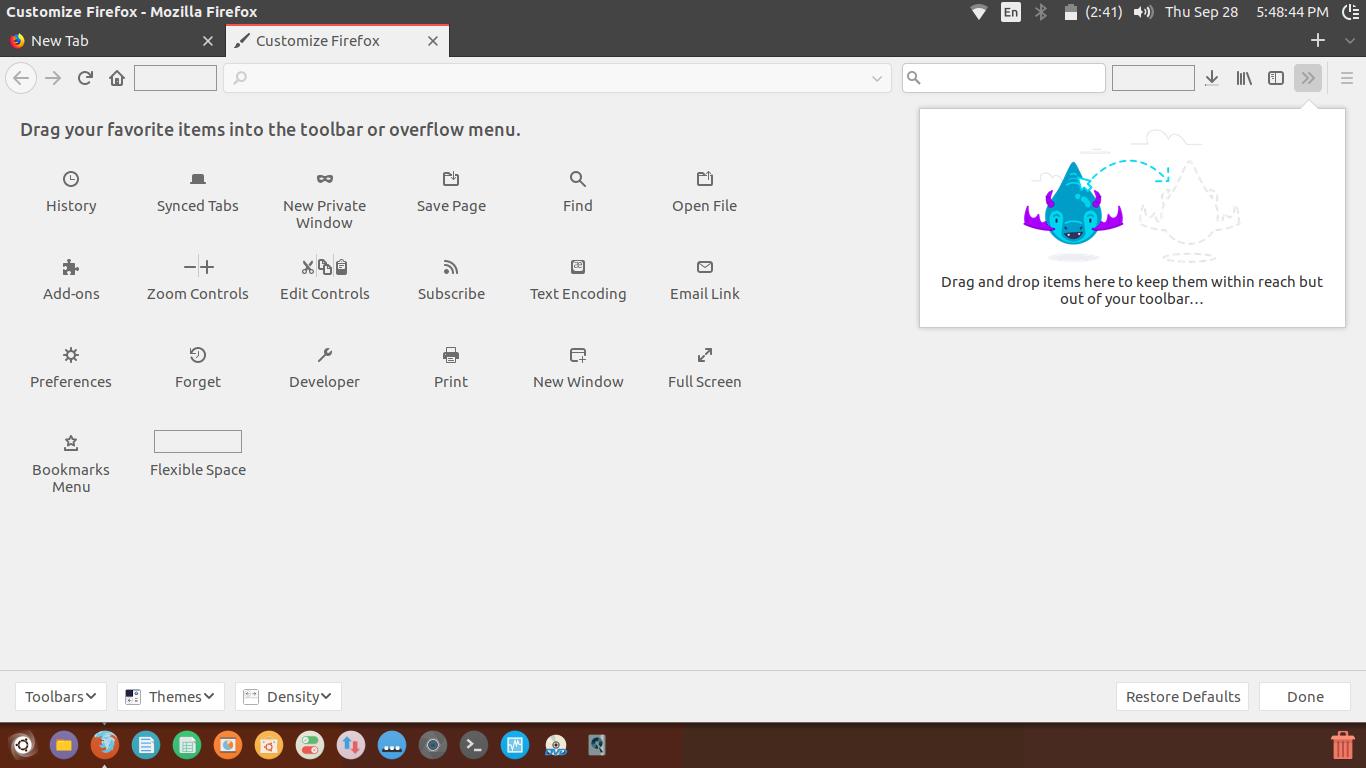
Apart from improving the performance, Mozilla has improved the Firefox UI via Project Photon. This minimalist and new design brings square tabs and smoother animations. With Photon, your Windows touch PC will change the size of the menus based on the fact that you touch with a finger or click with a mouse.
This design also introduces a Library, which is home to all the saved content, including bookmarks, history, downloads, tabs, screenshots, and Pocket.
The new Firefox developer edition has also got its share of attention. The new console UI is written using React. There’s a new debugger as well.
So, are you excited?
Chances are that you might be knowing about Goldilocks Principle named by analogy to the children’s story, The Three Bears, in which a little girl named Goldilocks prefers porridge which is “just the right” temperature–neither too hot nor too cold. If we apply this principle to today’s web browser, no browser qualifies. With Firefox Quantum, Mozilla is aiming to hit that sweet spot and find performance improvements without hogging your PC’s RAM.
Firefox Quantum (or, Firefox 57) Stable launches on November 14, 2017. Are these changes coming with Firefox Quantum making you excited? You can go ahead and grab the beta edition here. Give it a try and don’t forget to share your views and feedback.


